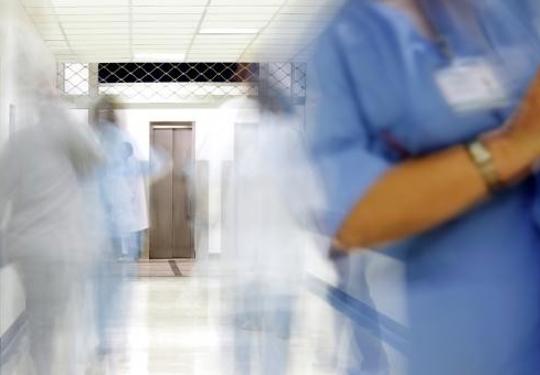A recent Royal College of Physicians (RCP) visit to Buckinghamshire Healthcare NHS Trust found a supportive training culture where resident doctors, consultants and educators work together to deliver high-quality patient care and education.
The president’s visit formed part of the RCP’s ongoing programme of regional engagement, listening to members and fellows across the UK and supporting them to deliver high-quality patient care.
Led by RCP president Professor Mumtaz Patel, the team met with resident doctors, consultants and medical education leaders on 14 October 2025. The visit included a presentation on support for international medical graduates (IMGs), a tour of the simulation suite and detailed discussions about training experiences across the physician specialties.
Resident doctors described an environment where ‘everyone knows each other’ and where civility, visibility and continuity make a real difference. Many had returned to the trust after earlier placements, citing positive learning experiences and strong consultant support.
Dr Alex Henshall, who is an acute medicine registrar at the trust, and a chief registrar on the 2025/26 RCP Chief Registrar Leadership Programme, said:
‘Doctors aren’t short of commitment – we’re short of opportunity. Medical school places keep rising, but training posts and protected time haven’t kept pace, leaving talented doctors stuck in bottlenecks or pulled from learning to fill rota gaps. At 2am, patients expect a calm, well-trained registrar – not someone who’s never had time for proper simulation because service always comes first. We need workforce planning that matches graduate output, fair recruitment that values NHS experience, and the simple changes that make a real difference: protect on-call and teaching time and convert suitable locally employed roles into training posts. If we don’t fix this now, we risk losing a generation of NHS physicians.’
RCP senior officers praised the hospital’s simulation facilities, describing them as excellent – modern, well-equipped, and used for learners at local, regional and even international level. Staff were congratulated for turning good ideas into sustained educational practice.
Rota coordination emerged as the most significant challenge raised by doctors in internal medicine training. Several said they sometimes feel ‘like a number to fill a spreadsheet,’ pulled from specialty blocks to cover foundation or service gaps with little recognition of training needs. Others said they struggle to access simulation training due to rota constraints.
Professor Mumtaz Patel, RCP president said:
‘People clearly feel proud of their teams and are committed to improving both patient care and medical training. The challenge now is to align that enthusiasm with structures that protect education and make workloads sustainable. For example, clear communication and protected training time are key to making resident doctors feel valued and supported. Improving the interface between education and rota planning is absolutely essential.
‘Thank you to the team at Stoke Mandeville Hospital, including our college tutors, Dr Veena Borkar and Dr Nadine Ali, and RCP regional advisers, Dr Jane Democratis and Dr Asif Humayun, for hosting such an interesting and enjoyable visit. The RCP will continue to advocate both locally and nationally as the voice of physicians to ensure our fellows and members can deliver safe, high-quality care and thrive in their medical training.’
Consultants described the trust as collegiate, empowering and open to ideas. They noted recent progress on job planning, with SPA time increased to 1.5 PAs for consultants and SAS doctors, and 95% of job plans now updated.
While pressures remain high, both consultants and resident doctors said the organisation’s culture – focused on teamwork, kindness and shared learning – is what keeps people motivated.
Medical education fellow Dr Aslihan Tapan said:
‘IMGs are the backbone of the NHS, yet too often they arrive in an unfamiliar country without the support they deserve. Early investment in induction, mentorship and simulation isn’t a luxury – it’s the key to safer care and better retention. Small steps like a proper welcome, help navigating everyday NHS culture and visible IMG champions make a huge difference. Supporting doctors as people – not just professionals – means thinking about their families, their confidence and their future here. When IMGs feel valued and equipped to thrive, patients, teams and the whole health system benefit.’
Trust leaders welcomed the feedback and outlined next steps, including improving communication about service changes, strengthening continuity across sites and showcasing local innovation in prevention and digital care. We heard that a central rota coordination team for medicine is being recruited, and the approach will be rolled out across the trust.
Next steps
The RCP will feed back to the trust executive team in writing. We will also use the discussions to inform our national policy and advocacy work across the UK and our ongoing strategy development.
Our 18 regional networks across England, Wales and Northern Ireland provide members and fellows with access to events, CPD, training and conferences close to home, supported by dedicated regional teams. They offer opportunities to connect with local physicians, stakeholders and RCP representatives, as well as the chance to ensure regional issues are heard at a national level.





